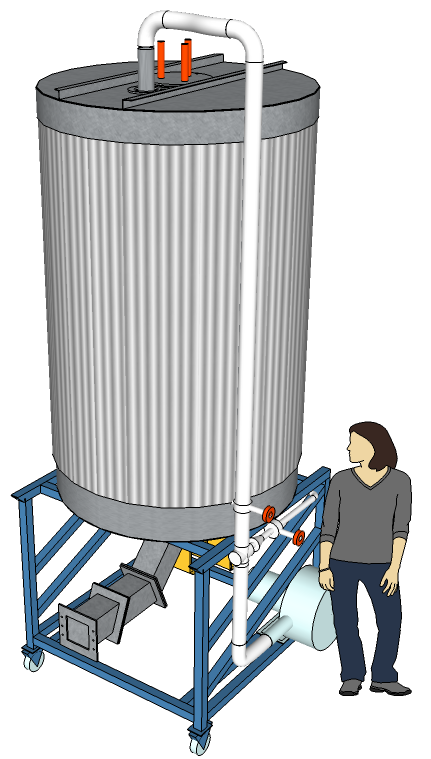| FLY technologies is used for
coking and fouling liquid fuels, such as pyrolysis oil |
Clean
Fuels developed a new technology for feeding high-temperature
processes with pyrolysis oil (liquefied biomass) and other coking and
fouling fuels. Processes in which Free Fall Liquid Injection
Technology (FLY) can be applied include combustion for furnaces and
steam boilers, gasification, stationary engines and gas turbines.
Pyrolysis oil made from biomass is a liquid fuel that is known for
its coking character, which leads to strongly reduced plant
availability. Clean Fuels’s FLY technology effectively solves the
issue.
Coking
and fouling of liquid fuels is a result of the fuel's tendency at
elevated temperatures to form deposits on fuel lines, valves,
injectors, and reaction chamber surfaces. Particularly fuel injectors
are vulnerable to deposition of solid matter caused by auto-oxidation
(fouling) or cracking (coking).
Standard
solutions to this problem include nozzle cooling and flushing and
usually only postpone the occurrence of unacceptable levels of coking
and fouling. Clean Fuels’s FLY technology addresses the matter
from a couple of new angles: radiative heat transfer to injector
nozzles is minimised to maintain nozzle temperature below coking and
fouling point, the liquid enters the reactor in free fall without
touching any hot surface area, the fuel is evaporated rather than
atomised and any coke formation upon evaporation is converted with
separately applied reactants. To some extent, the technology shows
similarities with the well known Swedish Primus Stove, with its
liquid fuel vaporizer, known since 1892.
Clean
Fuels engaged in the development of FLY technology because reliable
technology for the combustion of biomass pyrolysis oil at small
scales in the range of 10-500 kW is not really available at
affordable costs.
Clean
Fuels developed, built and tested an 80 kW burner for fuelling with
pure plant oil (PPO) and pure biomass pyrolysis oil. Extended
combustion tests showed that the emissions to air are well below
limits allowable to the industry. The biomass pyrolysis oil used by
Clean Fuels was produced by Clean Fuels in its charcoal production
demonstration plant in Oldenzaal with a production capacity of 1.75
tonne charcoal per day.
FLY
technology is also used by the same charcoal production facility.
Other uses that are technically feasible without substantial further
development include heating applications of 50-500 kW.
Patents
to Clean Fuels’s FLY technology are pending.
Oldenzaal,
26 March 2014 |

|
|



